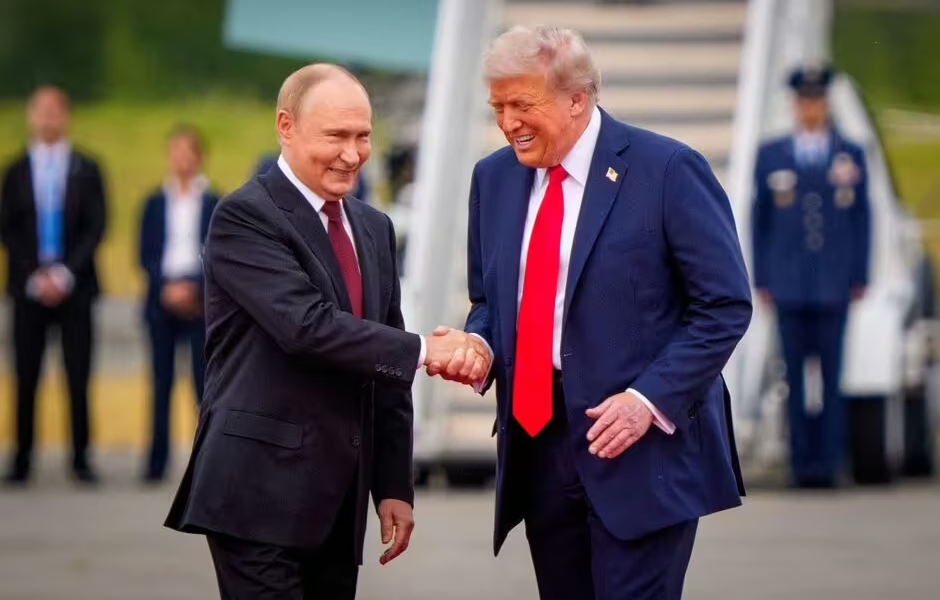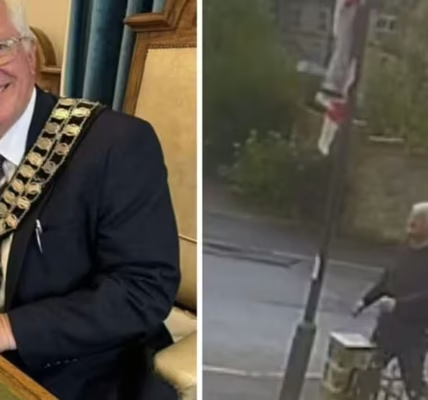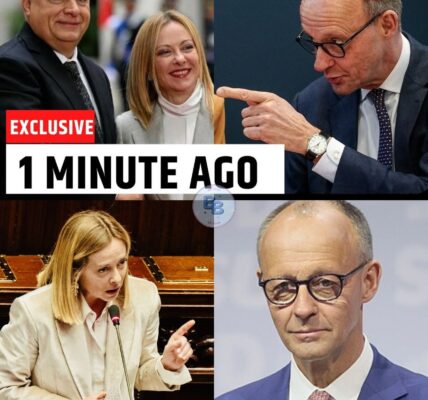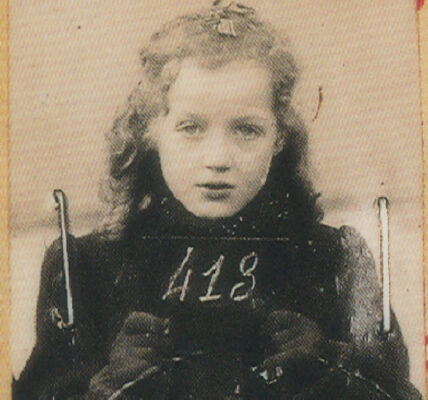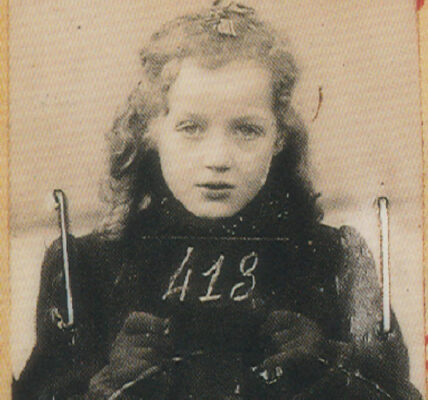Britain in ‘grave danger’ of failing biggest test since WW2 as Trump chases Ukraine deal

A leading analyst said Putin will consider the Alaska summit ‘a victory’ (Image: Getty)
Britain and Europe are in “grave danger” of failing the greatest security challenge since World War II, experts warned as President Donald Trump races to nail down a peace agreement critics fear will reward Russia and put other nations at risk of invasion. Alarm surged in the wake of the US-Russia summit in Alaska that President Volodymyr Zelensky will be pushed to accept a deal which leaves Ukraine weakened when he meets President Donald Trump in Washington DC on Monday.
Foreign policy experts warned Russian President Vladimir Putin will consider his face to face meeting with Mr Trump a victory because he has not been forced into a ceasefire. There is deep concern he will now intensify the assault on Ukraine.
Former Defence Secretary Sir Grant Shapps said the “greatest risk” is a “hollow deal” which “freezes the conflict on Russia’s terms, legitimises aggression and fractures allied resolve”. He said this would “betray Ukraine and imperil Europe’s security for decades to come, including our own in the UK”.
Sir Grant pushed for a “surge” in support for Ukraine to strengthen its air defences and long-range strike capability.
He warned: “Securing peace in Ukraine is the greatest challenge Europe has faced since the end of the Second World War—and we are in grave danger of failing it.”
Former Conservative leader Sir Iain Duncan Smith said Mr Trump must recognise Mr Putin is attempting to manipulate him, with potentially catastrophic consequences on a global scale.
He said the US president’s “ambition for peace is laudable but Putin has no intention of delivering it until he has the whole of Ukraine,” adding: “If Ukraine goes down, Taiwan is next. President Xi has made that clear.
“If Taiwan goes down the hit to the global economy will be 10 times what happened when Russia invaded Ukraine.”
Former Defence Secretary Sir Liam Fox described the outcome of the Alaska summit as “hugely disappointing and sadly predictable”.
He said: “Putin will not change his behaviour even if there is a ceasefire in Ukraine which he will see merely as a strategic pause while he destabilises Moldova, Georgia or Romania.”
Pressing for tougher sanctions and measures to worsen Russia’s “labour crisis”, he said: “We should seize Russian assets and use them to help Ukraine defend itself, preserve its sovereignty and, ultimately, rebuild itself once the conflict is finally over.”
Prime Minister Sir Keir Starmer had warm words for Mr Trump – saying his “efforts have brought us closer than ever before to ending Russia’s illegal war” – but he said Ukraine’s leader should be involved in further talks.
“The path to peace in Ukraine cannot be decided without him,” he said.
Sir Keir stressed the need for “robust security guarantees” for Ukraine in any deal to stop Mr Putin “coming back for more”.
He said: “In the meantime, until he stops his barbaric assault, we will keep tightening the screws on his war machine with even more sanctions, which have already had a punishing impact on the Russian economy and its people. Our unwavering support for Ukraine will continue as long as it takes.”
Alan Mendoza of the Henry Jackson Society think tank pointed to risks on the immediate horizon, saying: “The biggest dangers now lie in Putin increasing the intensity of the conflict to secure a better land deal, and the US failing to punish Russian bad behaviour or pressuring Ukraine to sign a bad deal or one that won’t last.”
Shadow Foreign Secretary Dame Prit Patel insisted Ukraine must not be pushed into giving up land, telling Times Radio: “There can be no territorial secession whatsoever.”

The Ukrainian president is assured of the PM’s support, but he will meet with Donald Trump o Monday (Image: Getty)
Keir Giles, a Russia expert at Chatham House, described the outcome of the summit as the “worst possible news for Europe”.
He said: “The agreement is not for a ceasefire first and then negotiations, but instead to go straight to a peace settlement. And that’s what he appears ready to present to Zelensky when they meet in the US on Monday.”
He fears this will allow Russia to keep seized territory and leave “Ukraine defenceless”.
Neil Melvin, director of international security at the Royal United Services Institute, said: “Vladimir Putin came to the Alaska summit with the principal goal of stalling any pressure on Russia to end the war. He will consider the summit outcome as mission accomplished.”
He added: “Putin made no concessions at the summit. Moreover, he succeeded in presenting himself as a legitimate equal to the US president.
“He will also consider it a victory that he was able to marginalise Zelensky and European leaders from the central discussion about the future of European security.”
Mr Zelensky set out his priorities in a social media post, saying: “A real peace must be achieved, one that will be lasting, not just another pause between Russian invasions.”
As well as demanding an end to “killings”, he said: “All Ukrainian prisoners of war and civilians must be released, and the children abducted by Russia must be returned. Thousands of our people remain in captivity – they all must be brought home.”
